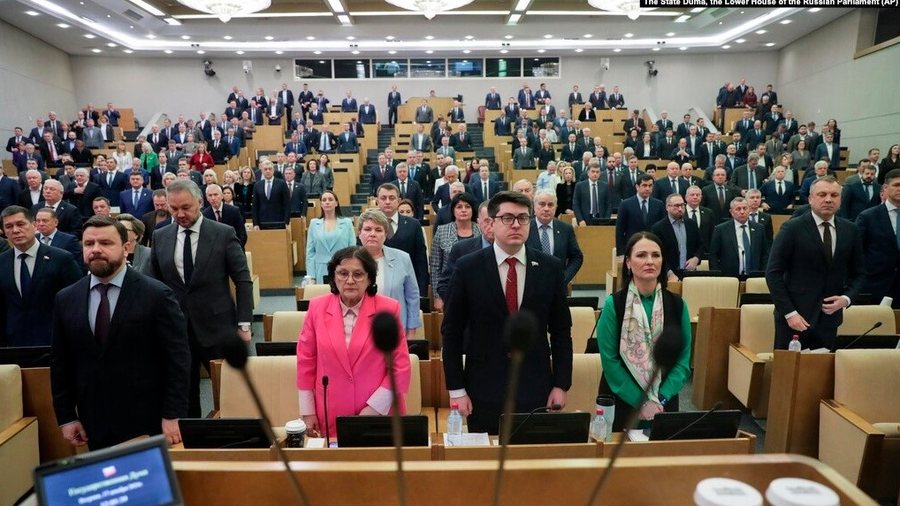
Russian lawmakers approved a bill on Tuesday that expanded the definition of high treason, part of efforts by authorities to tighten control as fighting in Ukraine turns three.
Amendments passed by the Duma, the lower house of the Russian parliament, expand the definition of high treason to include ties to any organization that is involved in "activities against the security of the Russian Federation."
The current legislation had a narrower interpretation of "going over to the enemy's side", defining it as joining the enemy's armed forces.
Those convicted of high treason can be sentenced to life imprisonment.
"In the situation where our soldiers are risking their lives in the battle for Russia's sovereignty, there are no 'neutral' or 'peaceful' organizations on the enemy's side," said Vasily Piskarev, chairman of the Duma's security affairs committee and one of the authors of the bill. "We cannot allow anyone to work for the enemy in our territory."
Human rights activists have warned that the bill's vague wording could be used to target anyone associated with any Ukrainian organization and could be interpreted more broadly to punish those who have any contact with Western organizations or companies. .
The legal definition of treason has now been expanded to include providing vaguely defined "assistance" to foreign countries or organizations.
The proposed amendments, which must also be approved by the upper house of parliament and signed by Russian President Vladimir Putin to become law, also provide for up to 15 years in prison for foreigners and stateless persons accused of "assistance for enemy activities against the security of the Russian Federation".
Trials for treason and espionage have increased dramatically since President Putin sent military forces into Ukraine in February 2022. Such lawsuits have been filed against a wide range of suspects, from Kremlin critics to independent journalists and scientists. attracting the attention of human rights groups. VOA (A2 Televizion)










